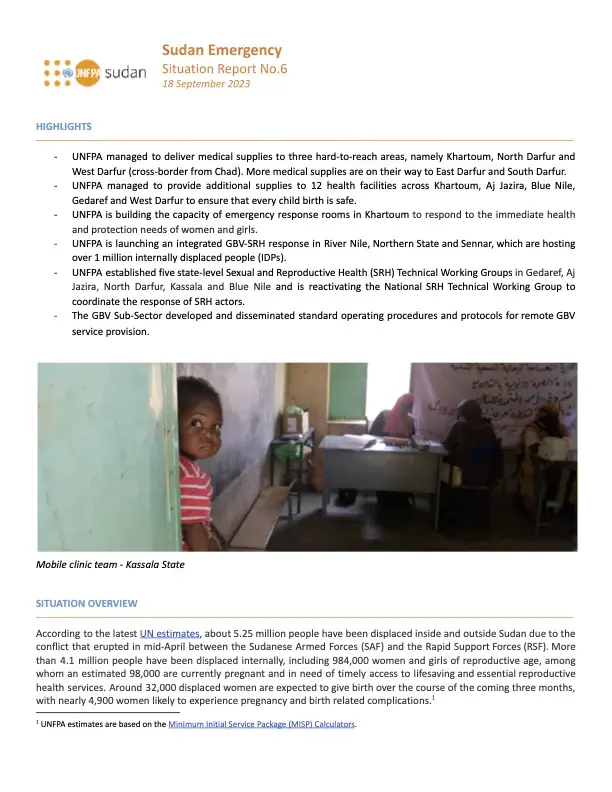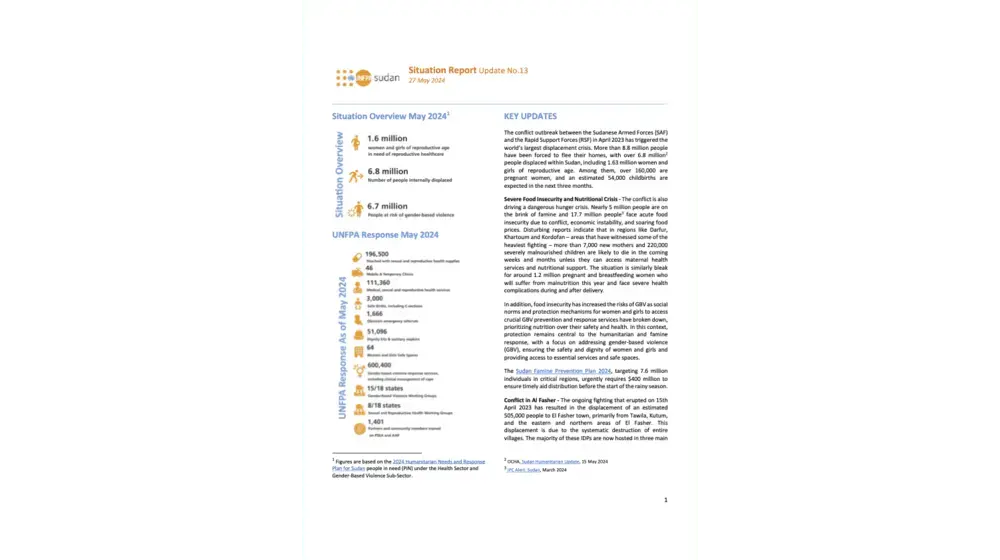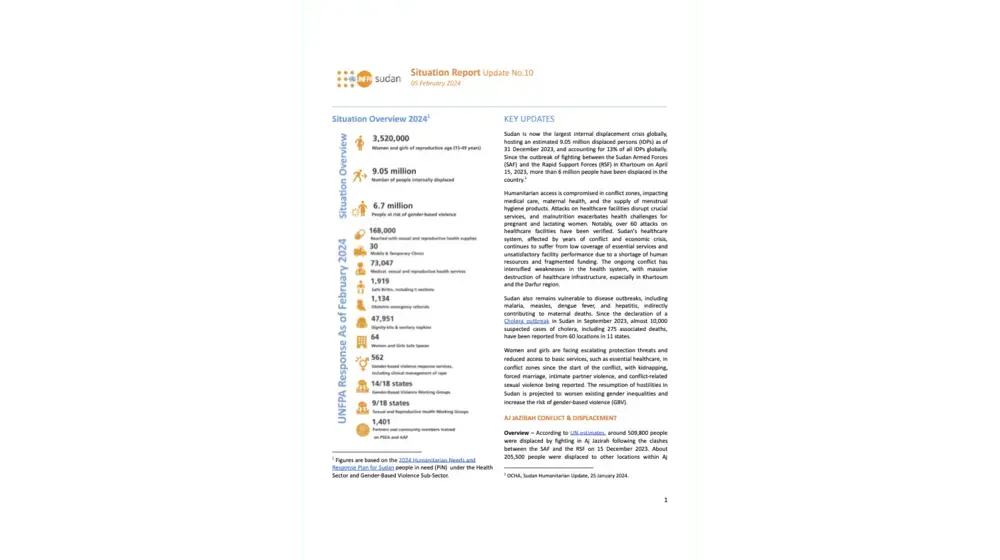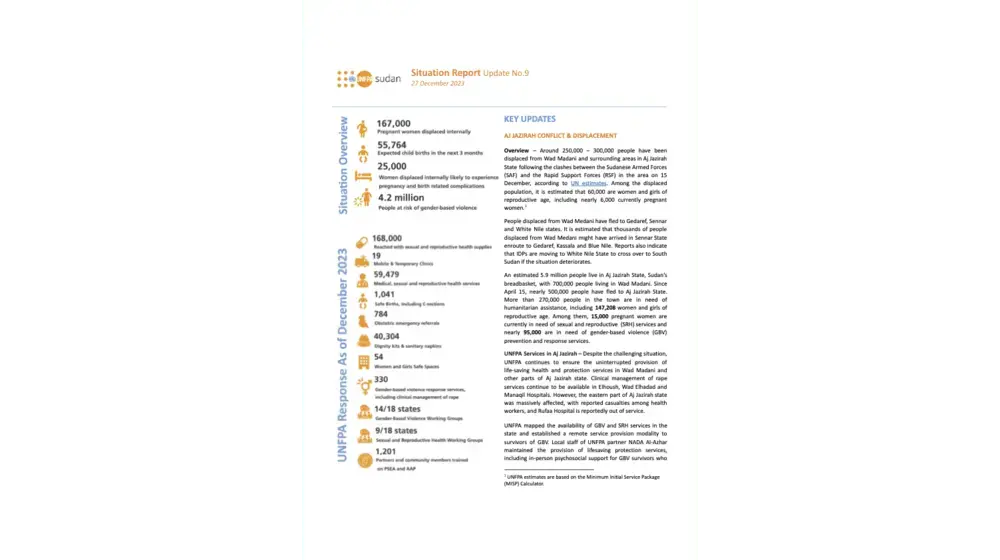Sudan Emergency: UNFPA Response and Situation Overview
The conflict in Sudan, which erupted in mid-April 2023, has displaced over 5.25 million people, including more than 4.1 million internally displaced individuals. Among them, nearly 1 million women and girls of reproductive age face significant health risks, with 98,000 currently pregnant and in urgent need of life-saving reproductive health services. The conflict has also increased the vulnerability of 4.2 million people to gender-based violence (GBV), as protection services continue to break down amidst escalating violence.
UNFPA's Humanitarian Response
UNFPA has been actively responding to the growing needs, delivering medical supplies to hard-to-reach areas such as Khartoum, North Darfur, and West Darfur. Supplies are on their way to East Darfur and South Darfur. Additionally, 12 health facilities in Khartoum, Aj Jazira, Blue Nile, Gedaref, and West Darfur have received support to ensure safe childbirths. UNFPA is also building the capacity of emergency response teams in Khartoum to address the immediate health and protection needs of women and girls.
In River Nile, Northern State, and Sennar, UNFPA is launching an integrated response to sexual and reproductive health (SRH) and GBV, targeting over 1 million internally displaced people (IDPs). The organization has also established SRH Technical Working Groups in several states to coordinate response efforts and support local healthcare systems.
Challenges and Needs
The situation in Sudan is dire, with 60% of health facilities non-functional and critical shortages of essential medicines like Oxytocin and Misoprostol, which are vital for preventing maternal deaths. Access to healthcare has been further complicated by electricity cuts, fuel shortages, and logistical barriers. Many pregnant women, particularly in conflict-affected areas, are at risk of complications without timely medical intervention.
UNFPA has deployed mobile clinics and temporary facilities to provide integrated SRH and GBV services, with a focus on internally displaced and vulnerable communities. However, more resources are needed to meet the increasing demand for life-saving health and protection services.





